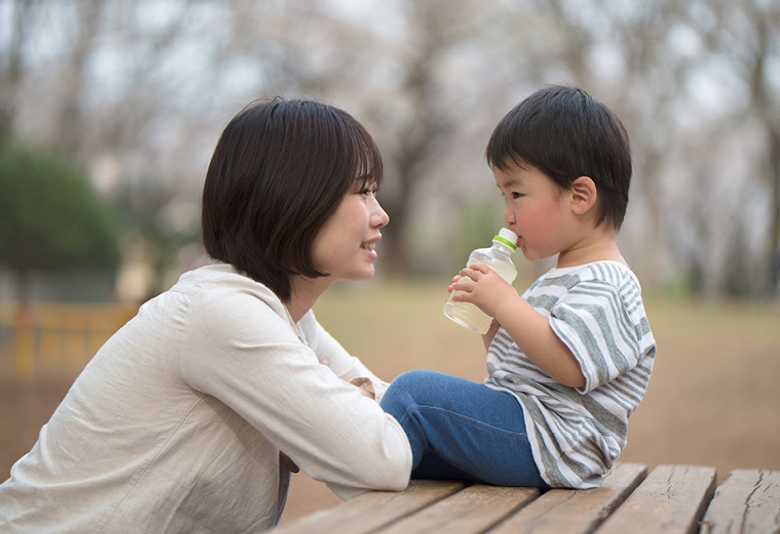With a big sex industry particularly the porn business, one would expect Japan to be a sex-positive country. But the reality is far from this glitzy image; sex is about procreation and access to birth control is a polarizing issue. So much so that women who ask for sexual and reproductive rights are vilified for their views.
“Japan was the last industrialized country to approve the use of pills in 1999. If you read what people said during that time, you will find that men saw the move as women getting control over their body. They believed this would lead to women having sex with multiple partners because they won’t be afraid of getting pregnant anymore,” activist Kazuko Fukuda shares, quoting her bachelor’s thesis which studied these responses.
Fukuda is the founder of Nandenaino – a Japanese sexual and reproductive health and rights’ (SRHR) organisation, which demands comprehensive sex education, a wider variety of modern contraceptives at affordable price, youth-friendly sexual health services and access to abortion pill.
Sexual health
During her research, Fukuda came across phrases like “is it good for your wife or daughter?”, “you might get sexually transmitted infections because girls will have more sex” and “this is the end of an era when men controlled women’s pregnancy”. This shows how birth control in Japan is more about gender and patriarchy and less about health.
Things haven’t changed much since then. Fukuda points out that in a 2019 survey conducted by a SRHR organization in Japan, one in seven men said women who use contraception are “sluts” or “weird”. “For women, contraception is just about protecting their bodies. But the society overly sexualize these decisions and judge women; this is an obstacle for women’s sexual health,” she argues.
Similarly, Fukuda shares, there was a huge debate in 2019 about the availability of emergency contraception pills (ECP). A group of specialists – 20 men and only one woman – discussed the potential negative effects of easy access.
“Some said ECP may be important for survivors of sexual assault but a completely barrier-free availability could be problematic. That women – due to lack of knowledge – might use it frequently instead of condoms, which could increase sexually transmitted infections. Or that women might resell it; for which they decided that women will have to take the pill in front of the pharmacist,” she narrates.
Fukuda says ideas and decisions like these limit women’s agency.
Access and awareness
Fukuda has lived in Sweden where she had an easy access to sexual and reproductive healthcare. She knows how far behind Japan is in this regard. “I am pleasantly surprised when I see foreign governments financing contraception use. As a Japanese, I don’t expect the government to support people who want to have sex but no children,” she admits. Fukuda adds that there won’t be any public support for such an expense either.
Fukuda explains this mindset is one of the reasons why Japan doesn’t have proper sex education at high school level. “People believe high school students should not be having sex. And this belief is very strong,” she points out, stressing that the reality is different especially for women.
The knowledge vacuum created because of the absence of proper sex education is filled by friends and porn. But like in many countries, porn in Japan is too far from reality and in some cases, even problematic. “The most common scenario in Japanese porn is women saying things like ‘please don’t’ and ‘no, no, no’ and men keep insisting, with the woman eventually starting to enjoy,” Fukuda shares, stating that women internalize this role and believe they have to say no because otherwise they will be seen as a “slut”.
“Consent becomes a blurry, confusing concept for both women and men. We have an old saying: “no, no also means yes” and men are programmed to keep insisting,” she complains.
Consent and pleasure
For women who don’t resort to such a role in porn and actively enjoy sex, their videos are categorized as “shameful girls”. “These women want pleasure, are open about sex and don’t say no,” Fukuda states.
Given this situation, Fukuda says, some people have started to talk about the importance of consent lately. But the problem extends deeper and touches many social aspects, such as pleasure and patriarchy.
If we look at sexual pleasure, Fukuda highlights that it is recognized only for men. And that too in commercial sense. It doesn’t exist for women and as stated above, those who pursue it are slut-shamed.
For couples, this translates into a whole different issue. “If you search about sexual problems in Japan, one serious issue is of sexless relationships. Many married couples don’t have sex at all or have less sex; and fewer people date, so sexual pleasure within couple or for women doesn’t exist,” Fukuda says.
Gender roles
A lot of it has to do with how the society is structured. A strict hierarchy with men placed above women. “Misogyny is strong and normalized; in news or TV shows, women are always sitting, smiling and nodding and the expert is always a man. We need to understand what misogyny is. And once we know that, we realize our daily life is a horror because it’s everywhere,” Fukuda shares.
But there is hope. Given the cultural and economic similarities between Japan and South Korea, Fukuda says Japan can learn from its neighbor. She says South Korea gives more attention to women’s health and gender equality than her own country. “These important issues are forgotten in the glitz and glamour of anime, cars and industry but we need to focus on them,” she urges, inviting people to sign two important petitions about easy access to modern contraceptives and emergency contraception pills.
This is Part II of a two-part series about contraception use in Japan. You can read Part I here.
Do you have something to share? Leave your comments below, contact us on our social media platforms: Facebook, Instagram and Twitter or send us an email to info@findmymethod.org. For more information on contraception, visit findmymethod.org
About the author: Cecilia is passionate about sexual and reproductive rights, and works as the Program Manager for Find My Method.





